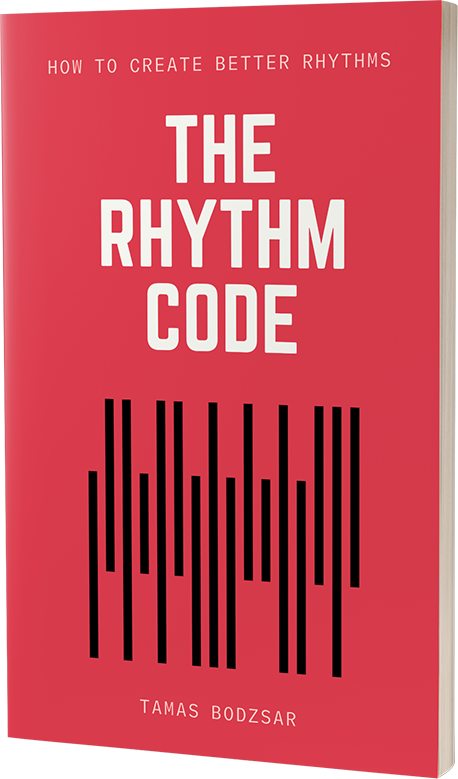
So you just finished a song and you are wondering whether if it’s potentially a hit? Writing a hit song is one of the Holy Grail for most musicians. And surely, many musicians became famous and successful by writing at least one song that became extremely popular. In this article, I will explain what aspects of the song you need to take a look at to measure whether if it’s a possible hit, and I will also explain why it is not enough to write a hit song.
Does it sound like the songs on the radio?
First of all, just listen to the song. Sure, you have already listened to it a million times. And that’s why it’s a little bit hard to be objective about it. But still, try to be objective. Does this song sound like something you would hear on the radio? I’m not talking about the production quality or the mix, but mostly the melody and the chord progression that is important. If you are not sure, then it probably doesn’t sound like songs on the radio.
But that doesn’t necessarily mean that it won’t become a hit. There is a reason why most hit songs sound the same. Successful songwriters use the same tools and techniques, and most of the songs are not very unique. But sometimes, there is a song that is very different from those other songs and becomes a hit. But the truth is, the chance for that is very low. It’s completely possible to write a song that is unique and different from other hit songs but it has a much better chance of becoming a hit if it’s similar. How similar, that’s another question. Because it has to be different enough so it doesn’t sound like a copy of another song. But the more unique your song is, the more “risk” you take, and the less likely it will become a hit.
Does it have a catchy melody?
Melody is the most important aspect of a hit song. That is what the average (non-musician) listener notices and remembers. Especially the choruses. There is one thing that is common in ALL hit songs: they all have a catchy melody. Today’s hit songs are so catchy that you only need to hear them once or twice in order to memorize the melody. So here is the question: does the melody of the song stay in your ears after hearing it only once or twice?
You can also test this with friends and family members. While they won’t give you an honest answer about whether your music is good or not, they can tell you if the melody is catchy or not. Play the song to them and notice their reaction when they hear the chorus the second, third, and fourth time. You can really notice if they react to the chorus in a positive way.
Sometimes you don’t even need to ask them. I just wrote a song recently and sent it to our singer who will write the lyrics for it. I didn’t even ask him, but he said: “It’s a sweet and sticky one, it keeps revolving in your head all day long.”
Does it sound good performed with only a guitar?
The most important aspects of a hit song are the melody and the chord progression. So any good song should sound great even if it’s performed by only a guitarist (or pianist) and a singer. When you perform your song with a guitar, singing the melody (even without lyrics), it really comes out whether if it’s something you would hear on the radio.
A great music arrangement can cover up the fact that it’s actually not a very good song. I have learned this from experience. I was a very experienced arranger, and my first songs were quite good in terms of the arrangement. They were danceable, with a great groove in the bass, fantastic horn arrangements, but the song itself wasn’t really good. My melodies didn’t make any sense. (I didn’t know too much about songwriting at that time.) My first songs were relatively successful (considering that they were performed by a completely unknown new band). But I know that they don’t have a really good melody, the arrangement made them sound much better, but they would have been much more successful with better melodies.
That’s why I always test how my new songs sound if they are performed with only a guitar (or even a ukulele that I can play) or a piano, and the vocal melody. If we strip down all the effects, all the grooves, instrumentation, and any other arrangements, and we just listen to the melody with the chords, we will know if it’s a good song or not.
Does it have more than five chords?
The next question is, does your song have more than five chords in it? As I mentioned before, hit songs today contain only three to four, maybe five chords at most. But the majority of them only contain four. And many of the songs contain the same chord progression in the verses and the choruses, that’s why you can perform songs like “Shape Of You” with a loop pedal. So if you can perform your song with a loop pedal, you have a higher chance that it will become a hit. I’m not saying that it’s impossible to write a hit song with more than five chords, but the chances are very low. The more you deviate from those songs that became a hit, the more risk you take.
Does it have a proven structure?
You don’t realize how important song structures are until you start to analyze successful songs. And we never notice the tools successful songwriters are using in their songs. But when you write down and analyze the structures of the songs, you understand why they use the very same “tricks” in their song structures. They affect us on a subconscious level, they influence our emotions without the music listener ever noticing it.
So take a listen to your favorite hit songs. Write down the structure of those songs. You can only understand the structure if you see it visually. You also need to write down the number of bars. Are these structures very much the same as your song’s, or they are very different? If the difference is big, then it has a much lower chance of becoming a hit. Remember that there is a reason why all successful songwriters use the same song structure. The structure of a song is one of the most effective ways of influencing the listener.
Why it is not enough to write a good song
It’s important to know that the song itself is only one aspect of a great hit, especially nowadays. First of all, there are many good songs that never become a hit, even though they meet every criteria in terms of the music. And there are many mediocre or bad quality songs that become a hit. This can be due to two reasons. Luck and money. But mostly money.
A lot of money invested in a promotional campaign can extremely boost the views of a song. And it’s relatively cheap to buy those views today. On Youtube, you can buy one view for as cheap as $0.001. That’s 1 million views, even if you only spend $1000 on ads.
One of the most mediocre, yet highly successful songs is “Get Lucky” by Daft Punk (not to mention the poor performance of the singer). But they didn’t “get lucky” with the hit. They spent a fortune on the marketing campaign. At one point, they bought ads on ALL TV channels in the UK at the same timing. So even if people switched the channels, they saw the same ad on all channels – a few seconds from the song. And I remember that time, no matter where I went, I heard the song everywhere on the radio.
Unfortunately, if a song is simple enough, and the production is relatively good, it can become a hit if you pour enough money on the marketing campaign. On the other hand, your song probably won’t become successful without marketing, even if it’s better than the average song on the radio.
The secret pattern behind successful songs
Get the eBook for $4.99

